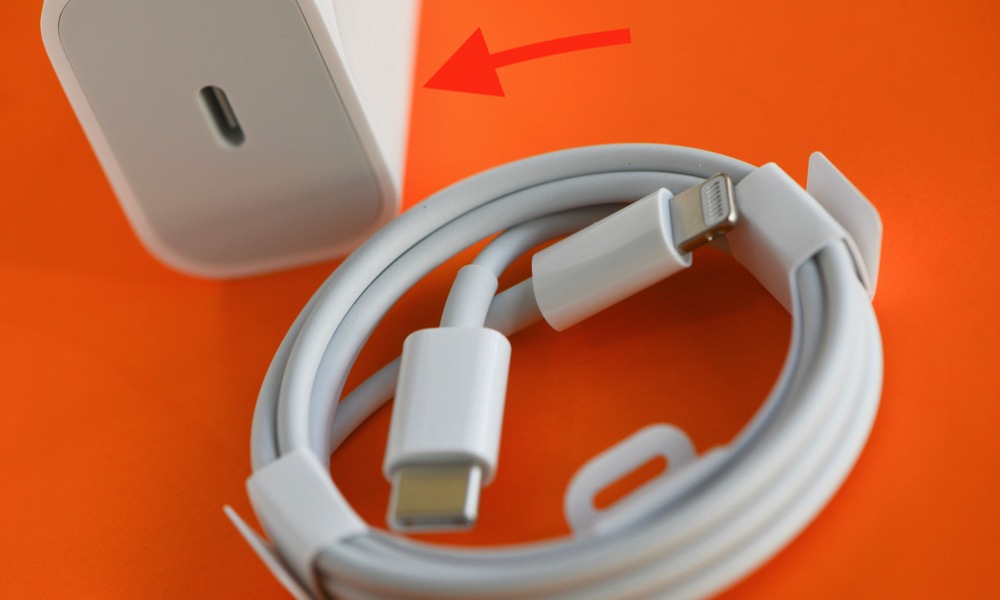The Charger Is an ‘Essential Part’ of the iPhone, Brazilian Regulator Rules
 Credit: Abolukbas / Shutterstock
Credit: Abolukbas / Shutterstock
Toggle Dark Mode
This year Apple controversially chose to remove both the USB power adapter and its wired EarPods from its iPhone packaging, and as much as that hasn’t sat right with consumers, it’s also raising the ire of government regulators in at least some countries.
In support of its decision to make this change, which also retroactively applies to the older iPhone models that Apple still sells, Apple has touted the environmental benefits of reducing both the weight and size of iPhone packaging, along with saving the environmental impact of manufacturing millions of accessories that many consumers will never actually use.
According to Apple’s chief of environmental responsibility, Lisa Jackson, this equates to taking 450,000 cars off the road each year, and while we tend to agree that it’s an overall win for the planet, other environmental experts have made valid arguments that the impact may not be quite as dramatic as Apple claims, since it will be offset by the cost of shipping and packaging the adapters separately, so in the end, it all really comes down to how many customers are going to need to buy these kinds of accessories separately.
Regardless, however, Apple’s environmental arguments haven’t been enough to convince regulators in at least some countries, and in fact shortly after the iPhone 12 went on sale, it became apparent that France would still require the EarPods to be included for health and safety reasons — specifically preventing children from being exposed to electromagnetic radiation from cellular phones.
While French law technically only requires Apple to supply the EarPods at the request of the customer, the company has clearly decided it’s easier to just include them with every iPhone sold in the country in order to avoid the need to ship them separately later, which would increase the costs and environmental impact even further.
An ‘Essential Part’
While the French laws focused primarily on much more specific health requirements of allowing children to keep their iPhones away from their heads, the Brazilian government is taking a much more direct approach in its disagreement with Apple’s decision to remove the power adapter from the packaging.
In a press release (Google Translate) issued earlier this week, Procon-SP, the Brazilian consumer protection agency for the State of São Paulo, declared the power adapter an “essential part” of the product.
Procon-SP understands that, when buying a new device, the consumer has the expectation that not only will the iPhone present better performance, but also the power adapter […] is an essential part for the use of the product.
Procon-SP Communication Advisory (via Google Translate)
Procon-SP notes that it first contacted Apple back in October to inquire as to the reason why it was no longer providing the charging accessories with its new iPhones, and while Apple naturally responded with the same environmental impact statements that it’s been sharing all along, the Brazilian agency was unmoved by Apple’s argument.
Despite Apple’s statement that many users already have existing chargers that they can use, Procon-SP stated that the company failed to demonstrate that old adapters may not “compromise the charging process,” and that they could be unsafe to use, and therefore it determined that Apple is responsible to provide a new adapter with every iPhone that will be guaranteed to charge the device properly and safely, rather than risking consumers opting for riskier solutions.
Further, Procon-SP also noted that Apple was unwilling to guarantee that the use of third-party chargers would not be used as a reason for refusing to repair an iPhone under warranty, leading to its insistence that if Apple requires a certain charger to be used, it is legally obligated to include that adapter with the iPhone.
Procon-SP ruled that since Apple has always included chargers with iPhones up until now, and that most smartphones are usually sold with chargers, Apple had a greater obligation to communicate this policy change to its customers, which it has failed to do.
Apple Isn’t Doing Enough
Procon-SP pointedly stated that it was unconvinced by Apple’s environmental claims with the change, since it failed to present a plan for collecting and recycling older devices.
Despite informing that, by removing the chargers from the box, it would reduce carbon emissions, mining and use of precious materials, the company does not demonstrate this environmental gain.
Procon-SP Communication Advisory (via Google Translate)
In short, Procon-SP feels that Apple isn’t doing enough to back up its alleged environmental concerns, since if it was serious about the environmental issues, it would also have a more active program to handle the logistics for the collection of old devices and adapters for recycling and proper disposal, which would create a much more positive environmental impact on dealing with e-waste.
It’s unclear exactly what Apple will be required to do under Brazilian consumer protection law, however Fernando Capez, executive director of Procon-SP, notes that as a minimum “chargers must be made available to consumers who order them,” suggesting that Apple may not actually need to include them in the packaging with every iPhone, as long as they’re offered at no additional charge upon request.
However, the Procon-SP release notes that Apple’s conduct still has to be reviewed by a higher agency, where it could still be fined under the country’s Consumer Protection and Defense Code if violations of the law are found.






